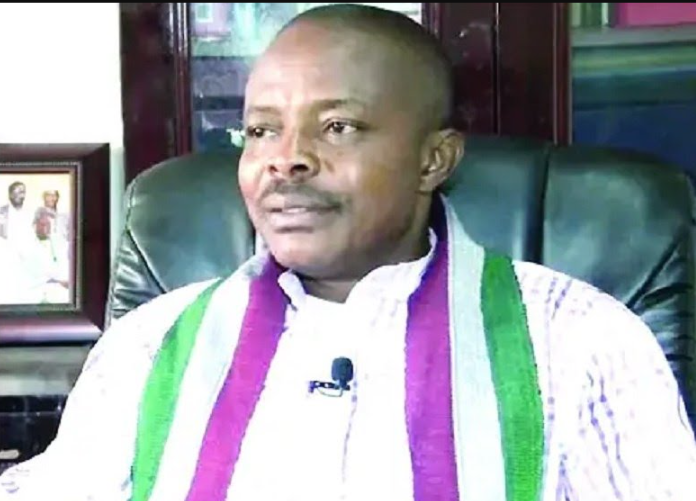Mrs Beatrice Jedy-Agba, the Solicitor-General of the Federation and Permanent Secretary, Federal Ministry of Justice says the notice of strike action issued by the Nigeria Labour Congress (NLC) is in contempt of the order of the National Industrial Court.
Jedy-Agba disclosed this in a statement she issued on Wednesday in Abuja.
She drew the attention of the members of the NLC and the general public to the pendency of SUIT NO: NICN/ABJ/158/2023 – FEDERAL GOVERNMENT OF NIGERIA & ANOR V. NIGERIAN LABOUR CONGRESS & ANOR before the National Industrial Court.
“His Lordship, J Anuwe, had on June 5, 2023 granted an injunctive order restraining NLC and Trade Union Congress from embarking on the planned industrial action/or strike of any nature, pending the hearing and determination of the pending Motion on Notice.
“The motion on notice is also praying for an order of interlocutory injunction for parties to maintain status quo pending the determination of the dispute or issues submitted to the court and the said Motion on Notice is still pending”.
She noted that the issues of removal of fuel subsidy, hike in prices of petrol and consequential increase in cost of living, etc which precipitated the above court action are the very same issues over which NLC has now issued another strike notice.
“The NLC has submitted to the jurisdiction of the court and is being represented by the reputable law firm of Femi Falana, SAN.
“It is, therefore, our minimum expectation that NLC will allow the courts perform their constitutional roles rather than resorting to self-help and undermining the orders of the court”.
Jedy-Agba noted with dismay that this latest strike notice is consistent with the inexplicable disdain which the NLC leadership has visited on the authority of the court in recent times following earlier inciting and derogatory remarks made by the NLC President against the court.
“Indeed, the avowed penchant of the leadership of the union for casting aspersions on the Judiciary is quite worrisome and concerning.
“Aside the above legal inhibition against any strike action of any nature, we also note that both the Federal and State Governments are engaging with stakeholders to cushion the collateral effect of the removal of fuel subsidy and increment in fuel price.
“It would be a great act of service to Nigerian workers and the nation’s economy for NLC to explore negotiations rather than embark on any strike action.
“We, therefore, urge NLC to allow good reason to prevail by adhering to the time-tested principles of lis pendis and rule of law to avert adverse consequences,” she advised.
NAN reports that on June 5, the National Industrial Court, NIC, sitting in Abuja restrained the Nigerian Labour Congress, NLC, and the Trade Union Congress, TUC, from embarking on their planned strike to protest the unilateral removal of fuel subsidy by the Federal Government.
The court, in a ruling that was delivered by Justice O. Y. Anuwe, barred the two organizations from proceeding with the strike action, pending the determination of a suit that was brought before it by FG.
The court held that the interim order, as well as the substantive suit, should be immediately served on both the NLC and the TUC, which were cited as defendants/respondents in the suit marked: NICN/ABJ/158/2023, even it fixed the matter for hearing on June 19.
The court order followed an ex-parte application that FG filed through the Federal Ministry of Justice.
FG’s lawyer, Mrs. Maimuna Lami Shiru, who moved the application, maintained that the proposed strike action was capable of disrupting economic activities, the health sector and the educational sector.
FG further tendered Exhibits FGN 1, 2 and 3, which were notices from the NLC, TUC and the Nigerian Union of Journalists, NUJ, to their members, asking them to withdraw their services with effect from Wednesday, June 7.
The court, in its ruling, held that it was empowered by section 7(b) of the NIC Act, 2006, with the exclusive jurisdiction in matters relating to the grant of any order to restrain any person or body from taking part in any strike, lockout or any industrial action.
It held that sections 16 and 19(a) of the NIC Act 2006, also empowered it to grant urgent interim reliefs.
The court held that the affidavit of urgency as well as the submission of FG’s lawyer revealed: “a scenario that may gravely affect the larger society and the well-being of the nation at large”. (NAN)









